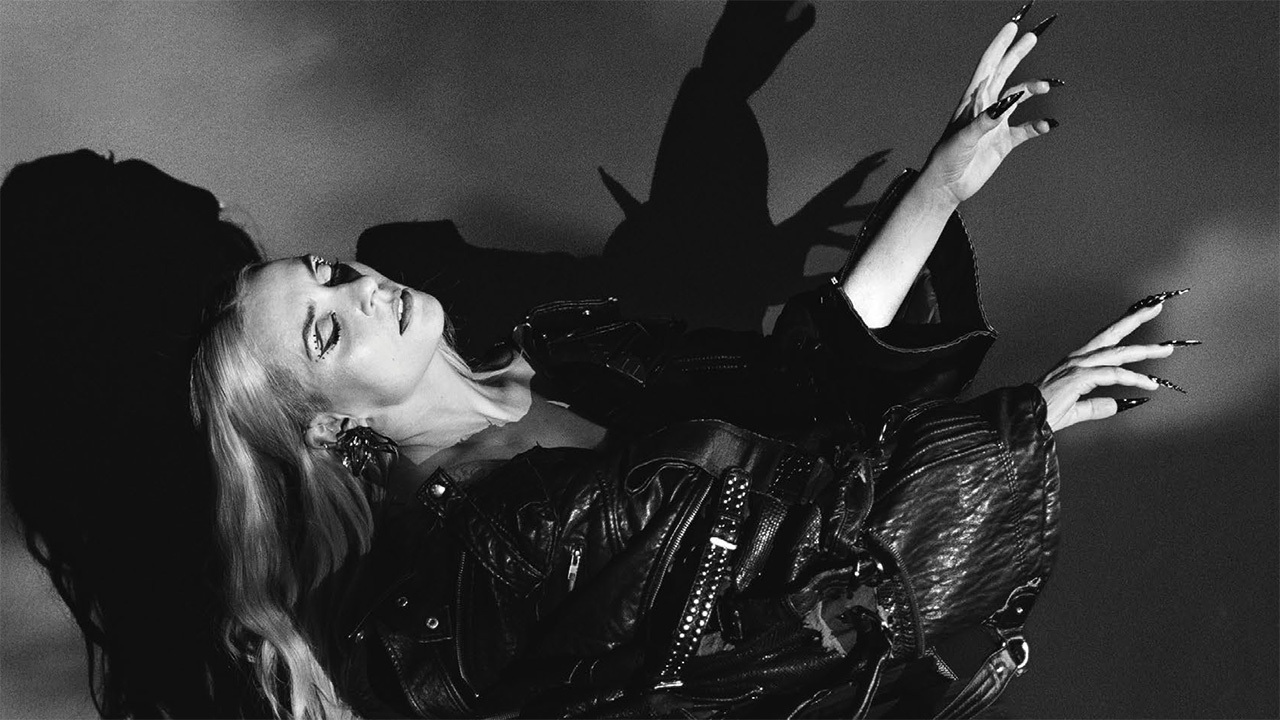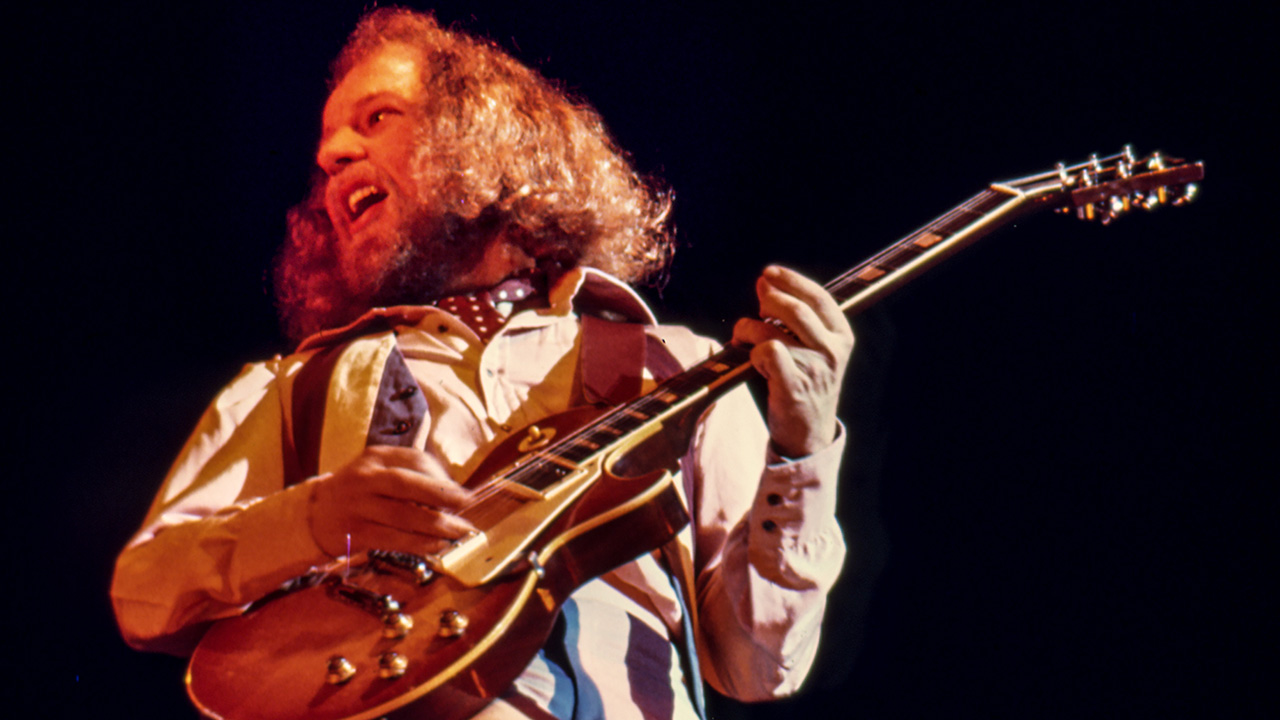“I remember the urge to sing when I was out in nature. Soft, beautiful summers and dark, harsh winters. You find that in my music”: Eivør can’t escape the Faroe Islands’ influence, and doesn’t want to
An abandoned school, a studio that’s about to close, Colorado’s Red Rocks Amphitheatre… she specialises in finding the magic in a space and channelling it into her music

Select the newsletters you’d like to receive. Then, add your email to sign up.
You are now subscribed
Your newsletter sign-up was successful
Want to add more newsletters?

Every Friday
Louder
Louder’s weekly newsletter is jam-packed with the team’s personal highlights from the last seven days, including features, breaking news, reviews and tons of juicy exclusives from the world of alternative music.

Every Friday
Classic Rock
The Classic Rock newsletter is an essential read for the discerning rock fan. Every week we bring you the news, reviews and the very best features and interviews from our extensive archive. Written by rock fans for rock fans.

Every Friday
Metal Hammer
For the last four decades Metal Hammer has been the world’s greatest metal magazine. Created by metalheads for metalheads, ‘Hammer takes you behind the scenes, closer to the action, and nearer to the bands that you love the most.

Every Friday
Prog
The Prog newsletter brings you the very best of Prog Magazine and our website, every Friday. We'll deliver you the very latest news from the Prog universe, informative features and archive material from Prog’s impressive vault.
In 2024 Eivør Pálsdóttir released her transformative album Enn, and told Prog how she’d dug deep into her Faroese folk traditions, the power of nature and the energy of solitude to make the record.
It means “still” in Faroese – although the word “enn” lends itself to neither the Faroe Islands, surrounded by the turbulent North Atlantic, nor the archipelago’s most famous daughter. Since her eponymous debut in 2000, Eivør has explored folk, electronica, art-rock and more in a career defined by a restless musical curiosity.
With a population of 71, the village of Tjørnuvík is the perfect spot to escape the distractions of modern life, and it became her base of operations as she made Enn, which is inspired by stillness and solitude. “It’s a beautiful place, isolated from everything,” she says. “You feel extremely far away from the rest of the world, but you’re close to nature. That makes you feel connected.
“It’s a strong contrast that you experience when you go to any tiny, isolated place. It’s almost too quiet sometimes, but that forces you to use your imagination. Nature and the elements have always been such a strong creative force in my music, so I like to go to places like that when I write. I often have a lot of sketches that I work on in the middle of the chaos, on tour or in a noisy city. Then I like to take it to a quiet place to dive further into it.”
Across eight songs, Enn moves between sweeping string arrangements, pulsing electronic beats and expansive, cosmic soundscapes. Those disparate elements reflect the formative environments that shaped Eivør’s artistic expression.
“I grew up in this small village [Syðrugøta] in the Faroe Islands,” she says. “I remember feeling an urge to sing when I was out walking in nature. It’s the contrasts – soft, beautiful summers and really dark, harsh winters. Even in the summer the weather can change from one minute to another. I think that’s something you find in my music.”
The creative process proved similarly capricious. Eivør recorded vocals for the first single, Jarðartrá (“Dust To Dust”) in an abandoned Tjørnuvík schoolhouse, long after dark. “I had this idea in the middle of the night of this spacious, operatic voice, and I recorded it as a demo. I was always thinking, ‘I’ll re-record it later and make it perfect.’
Sign up below to get the latest from Prog, plus exclusive special offers, direct to your inbox!
“But then I tried to re-record it in a proper studio with expensive mics and all that – and the funny thing is I couldn’t capture the same mood. Sometimes it’s about the mood you’re in when you’re creating; so I decided to use the demo on the album.”
The songs on Enn are sung in Faroese; so while the beats and production assert the modernity of the music, Eivør’s voice roots the album in something that feels older and deeper, particularly when she employs guttural throat-singing on Upp Úr Øskuni (“Out of the Ashes”).
“I’m extremely inspired by the heritage of the Faroe Islands,” she says. “Our folk music is all based on a capella singing. It has are so many ways of expressing with a voice, because there were no instruments in the Faroe Islands until very late.”
She turned to an old collaborator, poet Marjun Syderbø Kjelnæs – with whom she worked on 2015’s Slør – to create the lyrics. “It’s a beautiful thing when artists get together and share their artistry; you often end up somewhere where neither of you would end up by yourselves,” Eivør says. “Marjun has this beautiful language and this quite raw element to her lyrics. We had a great chemistry.”
Sometimes Kjelnæs took a song into a direction Eivør hadn’t foreseen, as with Upp Úr Øskuni. “I knew it should be a song about female empowerment and sisterhood – an ode to all the women who have made me stronger in my life. The lyrics Marjun sent me back were crazy. It was so raw. I hadn’t expected a lyric like that; I was extremely inspired and it changed the way I chose to sing the song.”
I was thinking, ‘That huge stage – what are we going to do?’ But I feel like the magic is already there; you just have to go with it
Aside from that late-night schoolhouse session, much of the recording took place in Eivør’s home studio. “Then I went to another studio with my band – I wanted to capture some live-played moments, to express the organic feeling of the music,” she says. “I went to Studio Bloch in the Faroe Islands, which unfortunately just closed down. I just managed to do my last studio session there.”
While she loves the sound of the full band, for her recent short run opening for Heilung in the United States, she used a duo format. “It’s always fun to be challenged in those ways, because I still wanted to play some of my bigger tracks,” she says. “But we managed to do that with the duo set-up. It keeps me a bit busier because I have to play more instruments, and so does my bass player. It was great fun.”
One of the shows was at Colorado’s open-air Red Rocks Amphitheatre. “I was a bit nervous about that,” Eivør admits. “I was thinking, ‘Oh my God, the two of us on that huge stage – what are we going to do?’ But I felt like we could fill up the space. We designed my set so it has this quite cinematic, big sound. It was incredibly beautiful to play there. It must be one of the most epic venues I’ve ever played, this huge space in the mountains. I feel like the magic is already there; you just have to go with it.”
Live, it’s so important that the music gets to be stretchy and happens in the moment
The cinematic side of her career – composing for The Last Kingdom TV series and the God Of War Ragnarök videogame – has helped bring new faces to her shows. That’s where she feels her music truly thrives. “Live, it’s so important to me that everything is organic, and that the music gets to be stretchy and happens in the moment.
“I don’t ever use backing tracks or click tracks or anything like that because I want to play with the musicians and feel their energy. It’s so important for me to keep that magic where a song is allowed to change from night to night. You come to this one show, and you’ll never hear the same show again.”
The writing process for Enn started two and a half years ago, so how did she know when the music was ready to be released into the world? “I think you just feel it,” she reflects. “You feel something is missing until it’s not missing any more and you feel it’s complete: ‘Now it has the shape and the sound, the build-ups and the drop downs, and all the little details I long for.’
“But I don’t think anything is really finished until I go out and play it live. Then I feel it’s not mine any more because I’m giving it away to people. I’m sharing it, and that’s when it’s complete.”
Enn may have been born from stillness, but Eivør is yearning to see how audiences move to the music. “To take these songs I’ve worked with for so many years in the studio, and bring them out to people and dig into them live, that’s the magic. I’m hoping to see people dance and be free.”
After starting his writing career covering the unforgiving world of MMA, David moved into music journalism at Rhythm magazine, interviewing legends of the drum kit including Ginger Baker and Neil Peart. A regular contributor to Prog, he’s written for Metal Hammer, The Blues, Country Music Magazine and more. The author of Chasing Dragons: An Introduction To The Martial Arts Film, David shares his thoughts on kung fu movies in essays and videos for 88 Films, Arrow Films, and Eureka Entertainment. He firmly believes Steely Dan’s Reelin’ In The Years is the tuniest tune ever tuned.
You must confirm your public display name before commenting
Please logout and then login again, you will then be prompted to enter your display name.





